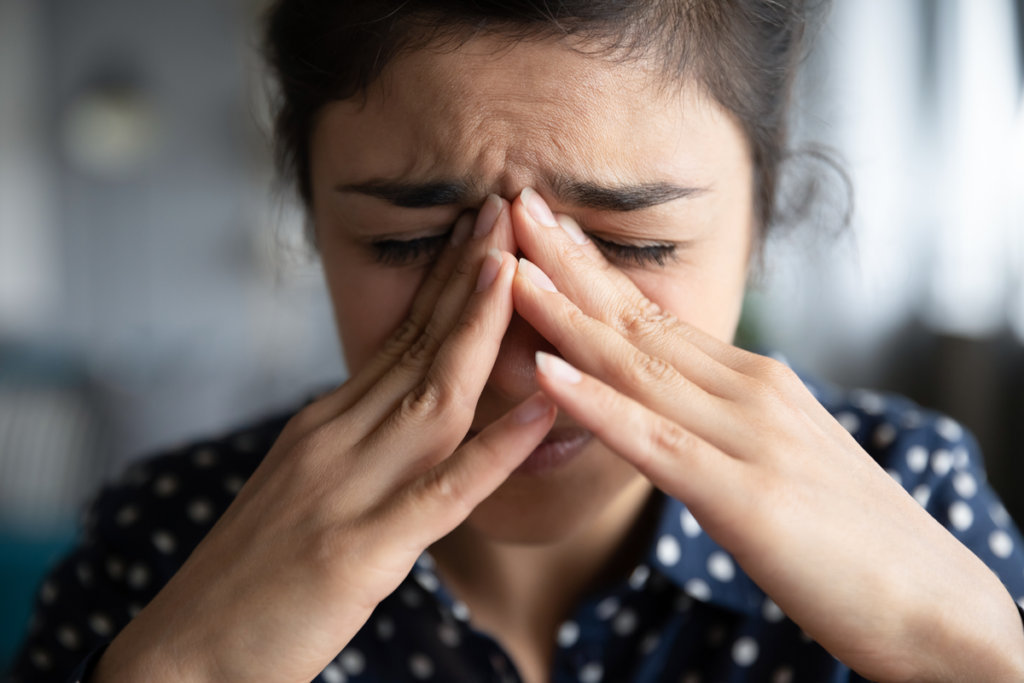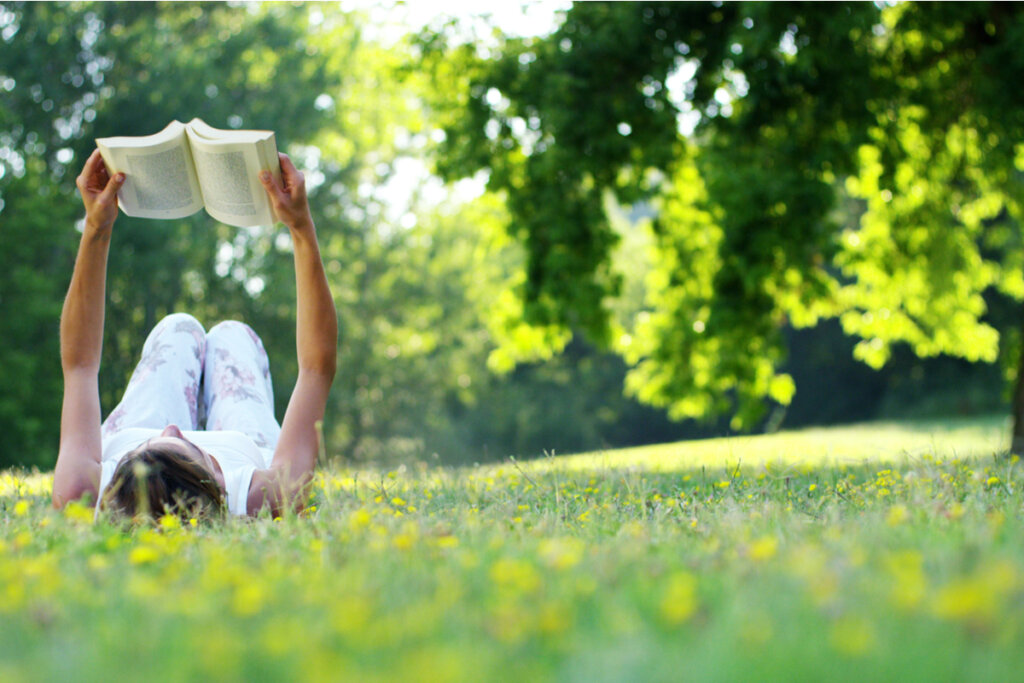What to Do if You Find it Hard to Relax


Written and verified by the psychologist Ebiezer López
“I find it hard to relax, am stressed all the time, and never seem to feel calm”. We live in a society where more and more people have trouble finding stress-free or low-stress moments in their days. Indeed, there are increasing demands made on us by the environment in order to adapt. We have to study, work, have a family, etc.
Therefore, we might say, that in today’s world we’re more exposed to stressors that can affect our health. For this reason, it’s important to identify the cause of the stress and have resources to manage our nerves and feelings of tension. Otherwise, it’s likely that we’ll end up succumbing to the pressure, which will produce further negative symptoms in us.
Why’s it so hard to relax?
Most people today lead fast-paced, busy lifestyles. Working, studying, taking care of the family, hanging out with friends … sometimes even things that should be enjoyable are no longer so. They begin to feel like an obligation that you’re forced to spend time on before moving on to the next one.
To this, we can add the consequences of the recent pandemic. For instance, we’ve all had to go through periods of social isolation. In addition, many of us faced unemployment and had to adapt to new ways of existence.
“Since this situation started, I find it hard to relax and just wish everything was like it was before.” It’s common to hear these words being spoken today. Indeed, recent studies indicate that the pandemic negatively impacted mental health, increasing stress, anxiety, and depression in the population (Shah et al., 2021).
It’s also important to mention that each of us has different ways of seeing reality depending on our own experiences. For instance, your perception of situations can often be altered and you see reality in a way that harms you. In fact, it could be said that your own thoughts act as a stressor and your internal dialogue as a source of pressure.

What can you do if you find it difficult to relax?
Regardless of the reasons why you may have trouble relaxing, it’s important to take action. That’s because chronic stress can seriously affect your mental and physical health. To avoid it, we suggest the following strategies:
1. Breathing exercises
Breathing is something you do involuntarily. However, in situations where you need to reduce the feeling of pressure, taking control of your breathing can help you a great deal.
Jerath et al. (2015) conducted a study on breathing as a self-regulation technique in cases of anxiety. They claimed that breathing helps reduce stress and the intensity of negative emotions, and increases control over the autonomic nervous system.
Along the same lines, different breathing exercises can promote a state of relaxation. Furthermore, you can do them wherever you are:
- Close your eyes and inhale through your nose for four seconds.
- Hold your breath for at least eight seconds (if you find this too difficult, release it sooner).
- Expel the air through your mouth, keeping your lips pursed for four seconds.
- Stop for a minute, feel the relaxing sensation, and then repeat the exercise.
For this technique to be effective, your breathing must be diaphragmatic. It means that, as you inhale, your abdomen swells but your chest stays down. This means the air is reaching your diaphragm and not just your lungs.
2. Mindfulness
Mindfulness is a therapeutic technique based on meditation that has positive effects on stress reduction. A systematic review of mindfulness-based stress treatments noted their usefulness in managing anxious, depressive, and stressful experiences. They also increased self-compassion and awareness (Kriakous et al., 2021).
Once again, there’s a simple exercise that you can do at home on your own. You just need to put on some comfortable clothes and find a quiet space. Then, follow these steps:
- Lie down or sit up straight.
- Close your eyes and take a deep breath through your nose, feeling your diaphragm swell.
- Breathe out slowly through pursed lips.
- Keep your attention focused on your breathing. Feel how the air goes in and out, how your abdomen inflates, how your body feels etc.
- If thoughts or images come up that might distract you from your breathing, don’t try to forcefully suppress them. Stay relaxed, and then return your attention to your breathing.
Although this exercise might sound simple, if you have a hard time relaxing, it might be difficult for you to achieve this state of relaxation. However, the only way to master it and enjoy its benefits is through practice.
3. Work on your sleeping habits
Sleep is more than just rest, it’s actually a biological need. While you’re asleep, your body launches different mechanisms to repair your organs and tissues. As a result, when you wake up, you’re prepared to face the challenges of the new day. However, if it isn’t quality sleep, it won’t be restful.
Consequently, stress levels in your body will increase in order for you to continue functioning. As a result, you may spend the rest of the day feeling cranky from not getting enough rest. If it’s repeated frequently, it soon becomes a habit and you’ll feel constantly tense.
Therefore, it’s essential to review your sleep habits to ensure that you obtain optimal rest. If you find it difficult to relax, perhaps a detox sleep routine could be ideal for you. It’s likely that you’ll initially find it difficult but you just need to persevere and make it a habit.
4. Find time for yourself
Often, when you get bogged down in responsibilities, you end up forgetting yourself. Indeed, your own needs and desires take a backseat because you have other obligations at work or school. However, in the end, this only creates chronic stress and you no longer greet your achievements with joy, but emptiness.
Being able to assume your responsibilities with the resources you have contributes to your personal well-being. Review your schedule and try to organize yourself so that you can dedicate time to yourself. It might involve resting a little or doing things you enjoy like reading a book, exercising, traveling, painting, etc.

5. Consider psychotherapy
The ideas above can help you manage your stress levels, but they may not be enough. In fact, stress or anxiety can often be due to serious emotional conflicts that should be evaluated by a professional. This is certainly the case if the feelings of discomfort are affecting your everyday life.
Finally, no matter what the reason is for you finding it hard to relax, it’s not a trivial matter. Don’t forget that your body needs to rest every so often in order to function normally.
All cited sources were thoroughly reviewed by our team to ensure their quality, reliability, currency, and validity. The bibliography of this article was considered reliable and of academic or scientific accuracy.
- Jerath, R., Crawford, M. W., Barnes, V. A., & Harden, K. (2015). Self-regulation of breathing as a primary treatment for anxiety. Applied psychophysiology and biofeedback, 40(2), 107-115.
- Kriakous, S. A., Elliott, K. A., Lamers, C., & Owen, R. (2021). The effectiveness of mindfulness-based stress reduction on the psychological functioning of healthcare professionals: A systematic review. Mindfulness, 12(1), 1-28.
- Shah, S. M. A., Mohammad, D., Qureshi, M. F. H., Abbas, M. Z., & Aleem, S. (2021). Prevalence, psychological responses and associated correlates of depression, anxiety and stress in a global population, during the coronavirus disease (COVID-19) pandemic. Community mental health journal, 57(1), 101-110.
This text is provided for informational purposes only and does not replace consultation with a professional. If in doubt, consult your specialist.








